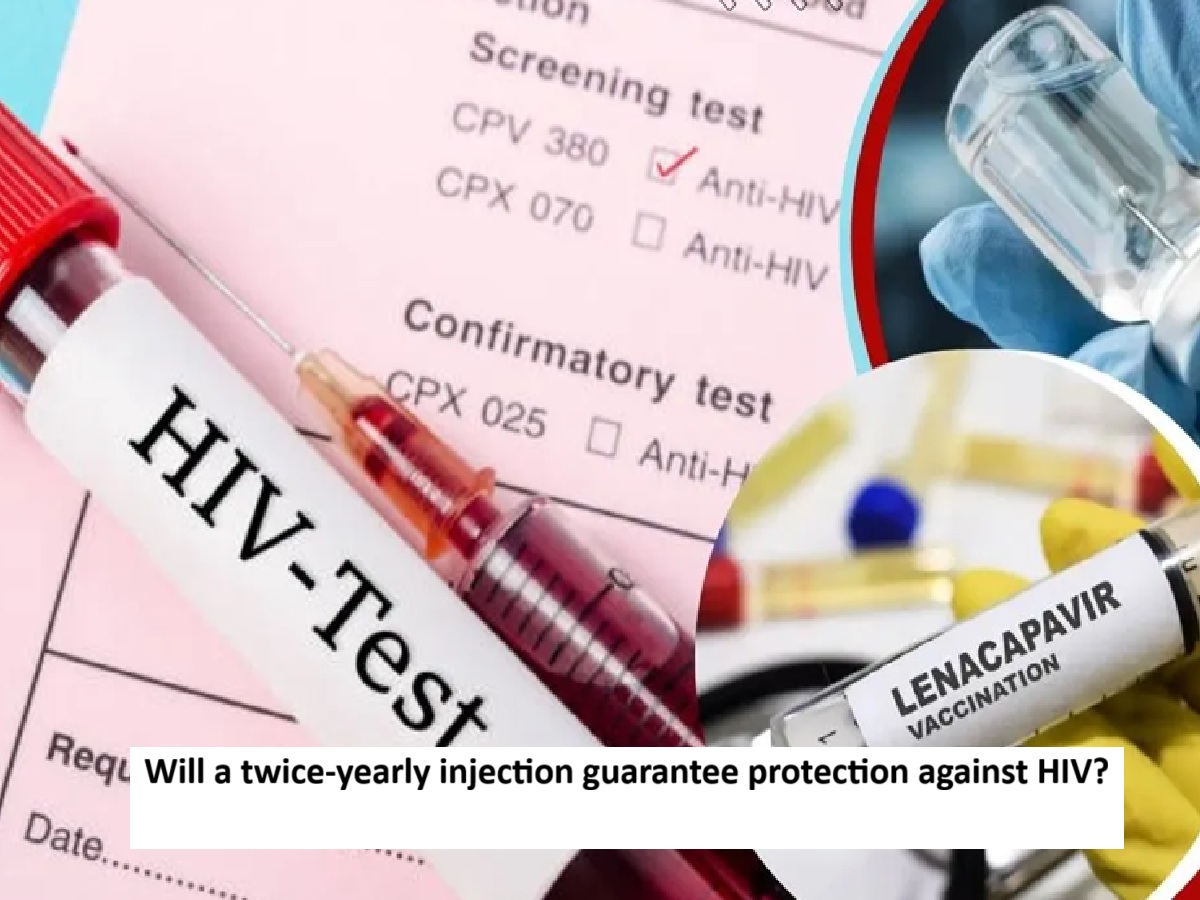
News Topical, Digital Desk : A new WHO recommendation reminds us that the fight against HIV is far from over. Yes, the WHO recently approved a new drug called Lenacapavir, which is given as an injection twice a year and is considered effective in preventing HIV infection. This move is not only a breakthrough in medical science, but also a sign that convenience and choice are now being prioritized in preventive measures.
1.3 million people will be infected with HIV in 2024
According to the World Health Organization, approximately 1.3 million people will be infected with HIV in 2024, a significant number of whom are adolescents and young women. These figures reflect not just the disease itself, but the deep inequalities that still exist in awareness, access, and healthcare.
Although medical science has made significant progress, fear and discrimination related to HIV due to lack of awareness and social acceptance still prevent people from seeking treatment or prevention measures.
One vaccine every 6 months
Traditional HIV prevention measures have included condom use and awareness campaigns. Then came oral pre-exposure prophylaxis (PrEP)—a medication that, when taken daily, can reduce the risk of infection by up to 90%.
However, the biggest challenges to this approach are consistency and social fear. The pressure to take medication daily, combined with societal attitudes and misconceptions, can deter people from taking PrEP.
In this situation, long-acting injectable drugs like lenacapavir offer new hope. This is especially true for people who are unable to take their medication frequently, travel frequently, or live in environments where discussing HIV is still associated with shame or fear.
It is very important to get tested
Misconceptions and stigma surrounding HIV remain deeply ingrained in many parts of the world. Many people still believe it is a disease of "certain people," while the truth is that anyone can get HIV.
Fear and embarrassment make people reluctant to get tested, which can lead to delayed diagnosis and increase the risk of spreading the infection. This fear needs to be addressed so that everyone can openly get tested and take appropriate treatment or preventive measures if needed.
A new twist in the fight against HIV
A new approach to HIV prevention is emerging: everyone should have the freedom to choose the option that best suits them. For some, condoms are the easiest solution, for others, daily medication (PrEP) is preferred, and for others, twice-a-year injections are the most convenient. Real progress will be made only when all these options are equally available and accessible to everyone.
The doctor says the fight against HIV isn't just about medicine or technology, but also about humanity and understanding. Until society openly discusses this topic, any scientific progress will be incomplete.
The World Health Organization aims to eliminate HIV infections by 2030, a goal that can only be achieved if we advance awareness, equality, and respect alongside medicine. After all, protection against HIV comes not from a single injection or medication, but from accurate information, self-respect, and open-mindedness.
--Advertisement--

 Share
Share



